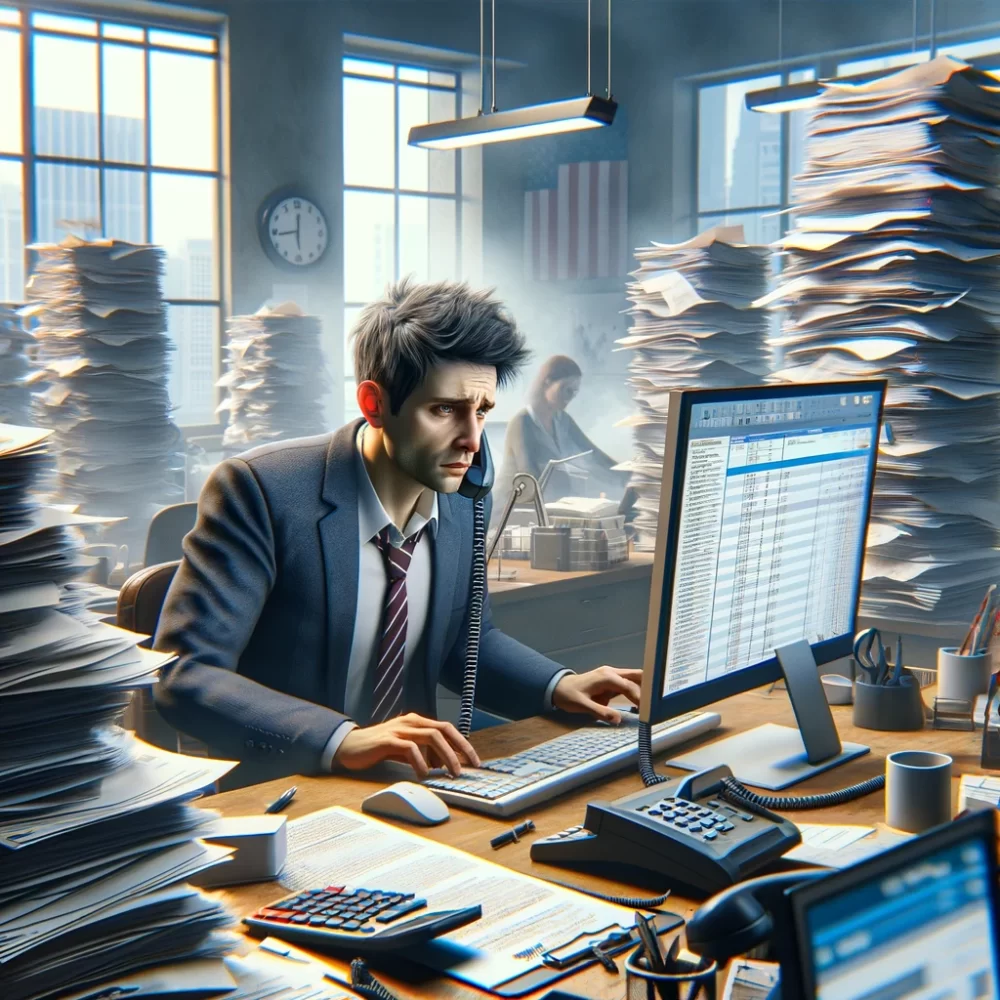Avoid The ‘Weakness’ Question Trap: 12 Answers That Could Cost You the Job

DALL-E
Navigating a job interview can be challenging, especially when faced with the tricky question, “What are your weaknesses?” Answering this question requires a delicate balance, as the wrong response can raise red flags for potential employers. Here are 12 answers to this question that you might want to avoid, along with explanations of why they might work against you.
1. “I Work Too Hard”

DALL-E
Saying you work too hard often sounds cliché and insincere. Interviewers are looking for genuine introspection, not a veiled attempt to disguise a strength as a flaw. This response can also imply that you lack work-life balance, which might concern employers about potential burnout.
2. “I’m a Perfectionist”

DALL-E
The perfectionist claim is a common and predictable response that can suggest inflexibility and inefficiency. It might also hint at potential difficulties in working with team members and adapting to changes. Employers value candidates who can demonstrate adaptability and collaborative skills.
3. “I Don’t Have Any Weaknesses”

DALL-E
Claiming to have no weaknesses can come across as arrogant and lacking in self-awareness. It suggests that you may not be open to feedback or personal development. Employers appreciate candidates who can recognize their areas for improvement and show a willingness to grow.
4. “I’m Not Good at Meeting Deadlines”

DALL-E
Admitting to poor time management can be a significant concern for employers, as it directly impacts productivity and team dynamics. If time management is a challenge for you, it’s better to focus on how you’re improving in this area rather than presenting it as an unchangeable flaw.
5. “I Struggle with Work-Life Balance”

DALL-E
While honesty is valued, admitting to struggling with work-life balance can signal potential issues with handling work stress and responsibilities. It’s important to show that you’re finding ways to manage your professional and personal life effectively.
6. “I’m Bad with Technology”

DALL-E
In a world increasingly reliant on digital tools, admitting to a lack of technological skills can be detrimental, especially if the job requires them. If technology is a weak point, it’s better to focus on the efforts you’re making to improve these skills.
7. “I Find It Hard to Work with Certain People”

DALL-E
Saying you find it challenging to work with certain people can raise questions about your teamwork and collaboration skills. In today’s diverse and team-oriented work environments, the ability to work well with various personalities is crucial.
8. “I Can’t Handle Criticism”

DALL-E
Finding it difficult to handle criticism can indicate a lack of resilience and openness to feedback, which are important for professional growth. It’s better to show that you view constructive criticism as a valuable opportunity for learning and development.
9. “I Get Nervous Speaking in Public”

DALL-E
Public speaking is a common fear, but highlighting it as a weakness without context can suggest limitations in communication skills. If public speaking is a challenge for you, accompany this admission with the steps you’re taking to improve in this area.
10. “I Tend to Procrastinate”

DALL-E
Admitting to procrastination can signal poor self-management and a lack of motivation, which are red flags for employers. It’s more beneficial to focus on a weakness that does not directly impact your professional performance or team contribution.
11. “I’m Not a Morning Person”

DALL-E
This might seem trivial, but it can imply potential issues with punctuality and productivity, especially in jobs with standard morning hours. Employers value employees who are reliable and energetic, regardless of the time.
12. “I Take on Too Much Responsibility”

DALL-E
While taking on a lot of responsibility can be a strength, it might also suggest difficulty in delegating tasks or setting boundaries. It’s important to demonstrate your ability to manage workload effectively and work collaboratively.
Tackling the Weakness Question with Strategy

DALL-E
The key to answering the ‘weakness’ question is to choose a genuine area of improvement and to show how you are actively working to address it. This approach demonstrates self-awareness, a commitment to personal growth, and a realistic understanding of your abilities.
Have you faced the ‘weakness’ question in an interview? How did you handle it? Share your experiences and tips in the comments. If you found this article helpful, remember to share it with others who might benefit from these insights. Together, let’s master the art of the job interview!

Tamila McDonald is a U.S. Army veteran with 20 years of service, including five years as a military financial advisor. After retiring from the Army, she spent eight years as an AFCPE-certified personal financial advisor for wounded warriors and their families. Now she writes about personal finance and benefits programs for numerous financial websites.


Half of these ideas are exactly the opposite of what you want to say at an interview!